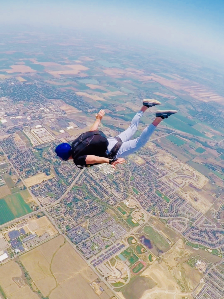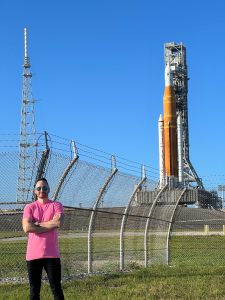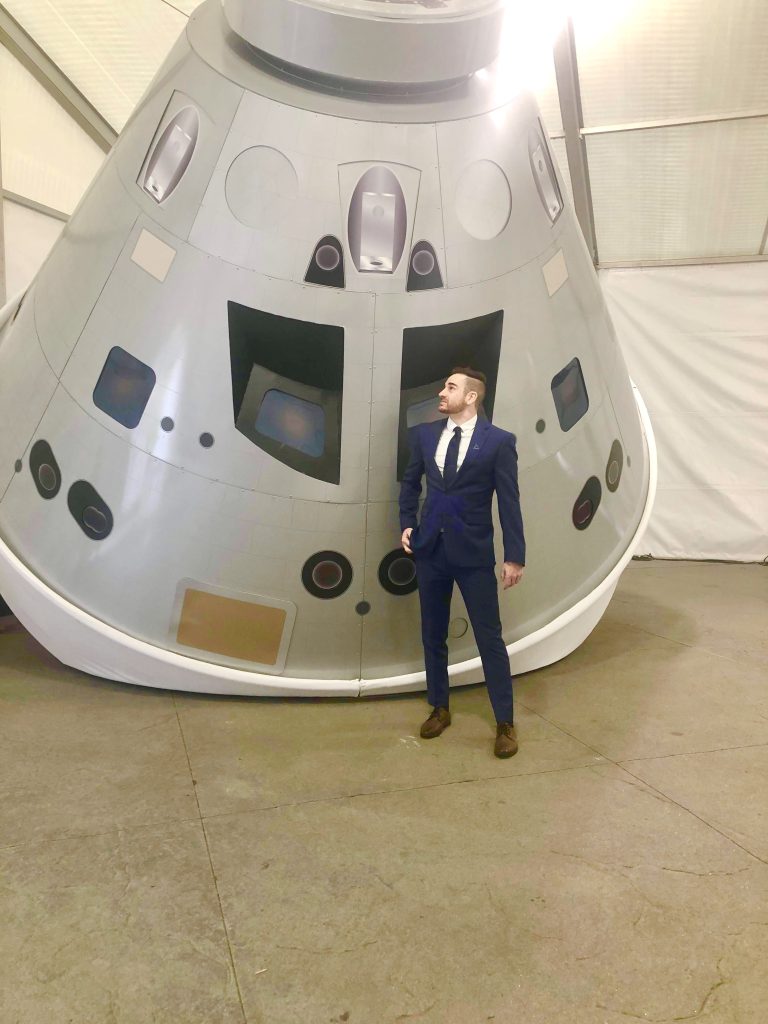My Journey with STEM and LPS
When I enrolled in college, my goal was to earn a bachelor’s degree in communications. I was drawn to this field by my fascination with its various disciplines and areas of study—specifically media production, media research and analysis, and business communications. I loved making short films as a student and even became a radio host/DJ and the Production Manager for WCUR, my college town’s radio station. Additionally, I believe that media literacy is a very undervalued and undertaught skill that is more important today than it has ever been. I also had the opportunity to work on some really exciting research projects with my phenomenal advisor, Dr. Ola Kopacz.
Towards the end of my junior year, I was hit with a newfound interest in science—specifically in genetic research and space. I had taken some elective classes in these areas, which alongside increased exposure to these fields from friends and family members who work in such fields, had transformed my interest in STEM into an all out desire to find a career in one of these fields. I decided on aerospace engineering—an area of study that would allow me to work in the exciting field of human spaceflight. I decided to start taking as many STEM courses as I could, while overlapping those courses with the last courses required for my communications degree. I spent two summers and an extra year after earning my communications degree taking undergraduate classes in calculus (differential, integral, and multivariate), linear algebra, differential equations, physics, chemistry, computer science, CAD, statics, and laboratory-based physics and chemistry—all with the goal of preparing myself to study aerospace engineering in graduate school.
Of course, I knew that the likelihood of succeeding in this endeavor was slim—not only was this a very uncharacteristic approach to attempting to gain acceptance into graduate school to study STEM, but most graduate programs had strictly defined entrance criteria pertaining to its applicants—most notably, a requirement that all applicants have a full undergraduate degree in the same or a related STEM field. While I had successfully completed rigorous coursework in countless STEM classes, I still didn’t have a full degree in any specific field in STEM. When I saw that my target school—the University of Colorado, Boulder—had a section of their website dedicated to prospective graduate students saying that every applicant must have “an undergraduate degree from an accredited institution in any area of engineering, mathematics, physics, chemistry or other physical sciences,” I became determined to be the exception to this rule. In my application to the school, I asserted that my GPA, class history, and GRE scores demonstrated that I have a very strong grasp of the core subjects required to study aerospace engineering at the graduate level. On March 1, 2017, I became the first person whose undergraduate degree wasn’t in STEM to be accepted into CU Boulder’s aerospace engineering graduate program—which was just ranked as a top 5 program by U.S. News and World Report. I graduated in May 2019 with a Master of Science in aerospace engineering with a concentration in bioastronautics (the study and support of life in space), as well as a Graduate Certificate in project management.
Since May 2018, I have been working at Lockheed Martin as an aerospace engineer, and have had the privilege to work on numerous exciting space programs. I am currently an aerospace engineer and engineering manager working on NASA’s Orion spacecraft, the cornerstone of NASA’s Artemis program by which humans will return to the Moon and go beyond. I owe all of my success to the support of my friends, family, and professors at West Chester University and CU Boulder.
I started my journey with LPS in 2018 when a friend of mine from high school posted about the organization on social media. I immediately signed up to be a STEM pen-pal because my rigorous and uncertain journey into STEM gave me a strong appreciation for the importance of having the support of people in those fields. One of the best parts of LPS is its annual training that informs its STEM pen-pals about the unique challenges faced by students from underrepresented and disadvantaged backgrounds. These students often have to overcome hurdles and difficulties that their counterparts from more advantageous backgrounds don’t. LPS plays a key role in providing support to the students who need it the most, and I am continuously honored to be a part of that effort.
There were countless times in my academic journey during which I felt stuck, confused, frustrated, and wanted to give up. The mentorship and support of those around me who worked in STEM, or were students themselves in STEM, were paramount to my success and determination to push forward. Every bit of this support was vital to my academic growth—the late night study sessions with my classmates, the countless hours spent in my professors’ office hours, and the motivational candor from my friends and family who worked in similar fields—just to name a few. After learning about the relative lack of STEM mentors and resources that underprivileged students have, I was determined to join LPS and their mission to provide these students with additional exposure to, and encouragement for, STEM fields. It has been an honor to work with LPS over the last 5 years, and I look forward to continuing to support their mission in the future.
Written by LPS pen pal Jake Tarnoff, published July 14, 2023




This is a great story, and I bet you’re a great pen pal for having lived it.